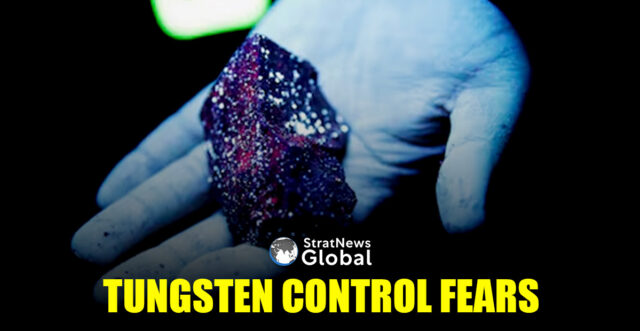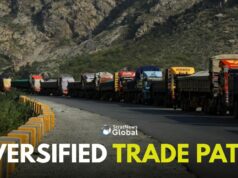American and other Western officials fear that a Vietnamese tungsten mine and refinery could fall under Chinese control, potentially restricting access to one of the largest non-Chinese sources of the critical mineral, according to people familiar with the matter.
Heightened U.S.-Sino trade tensions have seen China, by far the world’s dominant supplier of tungsten, restrict exports of the hard metal as well as other critical minerals in retaliation for U.S. tariff policies.
The Nui Phao complex in northern Vietnam is owned by Masan High-Tech Materials, a subsidiary of the Masan conglomerate, which has flagged its interest in selling the asset, five sources said.
Two Chinese companies have approached two foreign firms, asking them to act as their proxies in bidding for a stake in the business, according to one person briefed on those discussions.
That would allow them to exert their influence without publicly declaring their interest, the person said, declining to name the parties involved.
Hanoi Balances Chinese Investments
Stake sales could meet resistance from Hanoi, which has hampered Chinese involvement in sensitive sectors in the past. That said, Hanoi has allowed large-scale Chinese investment in Vietnam’s manufacturing sector, and the two neighbours have embarked on joint rail link projects that were once seen as dangerous from a defence perspective by many Vietnamese.
Nine people were interviewed by Reuters for this article, most of whom spoke on condition of anonymity, given the sensitivity of the subject.
Reuters was unable to establish whether any bids – whether for the entire complex or the mine or the refinery separately – have been made.
Masan and the U.S. embassy in Hanoi declined to comment.
Vietnam’s environment ministry, which oversees mining concessions, and China’s foreign ministry did not respond to requests for comment.
Visits Of Support
A U.S. diplomat and other Western officials have in recent months visited the Nui Phao complex multiple times, sources said.
The visits were meant to “show support,” according to one of the officials, who added: “There is Western interest in keeping the supply not China-controlled”.
The Nui Phao mine is one of the largest outside China. It produces almost all the roughly 3,400 metric tons estimated to be extracted annually from Vietnam, which last year was the world’s second-biggest producer after China, according to the U.S. Geological Survey, a government agency.
The refinery attached to the mine is also one of the largest outside China, with a capacity of 6,500 tons a year, and produces many tungsten products facing Chinese restrictions, including oxides and ammonium paratungstate (APT).
“It would be a concern if such an important refining operation were to be sold to a party not sharing the interests of Western industries,” said Andrew Goledzinowski, a former ambassador for Australia to Vietnam and an adviser to EQ Resources, which processes the entire output of its Australian tungsten mine at Masan’s refinery.
Tungsten is an extremely hard metal often classified as critical for its applications in defence and electronics industries, including for ammunition and semiconductors.
China, which dominates production with 83% of global output in 2024, restricted exports in February, requiring companies to obtain licences before shipping.
Tungsten Products’ Exports Slip
Chinese exports of a range of tungsten products fell sharply in February and have only partially recovered since then, according to Chinese customs data. Exports were 17% lower in July than in January.
That’s sent prices of APT, a raw material for many tungsten products, surging to record highs, up 71% in China and up 52% in Europe compared to the beginning of the year, according to information provider China Tungsten.
Tungsten from Vietnam accounted for 22% of U.S. imports last year and 8% of Europe’s imports, according to Project Blue, a minerals consultancy.
Masan has struggled to make the complex profitable, and the business is not part of its core food-processing and retail operations. The company sold its tungsten subsidiary in Germany last year.
Meanwhile, relations between Washington and Hanoi have soured.
This month, U.S. President Donald Trump imposed 20% tariffs on Vietnamese goods without a final agreement with Hanoi. He has also threatened more duties and has declined requests for a meeting with Vietnam’s top leader, To Lam, according to multiple officials.
Complicating matters, the complex’s permits are set to expire in the coming years. The mine’s license is valid until early 2028.
Any delays in arranging the renewal of concessions could force the refinery to scale down operations even before existing concessions expire, one of the people said.
(With inputs from Reuters)





